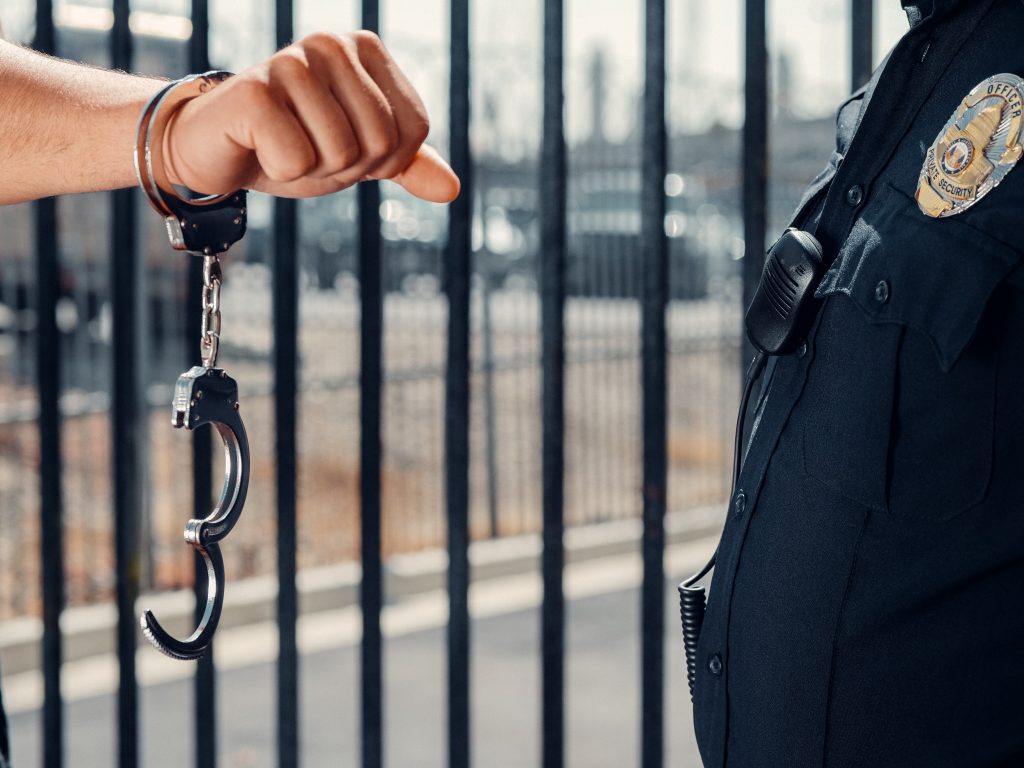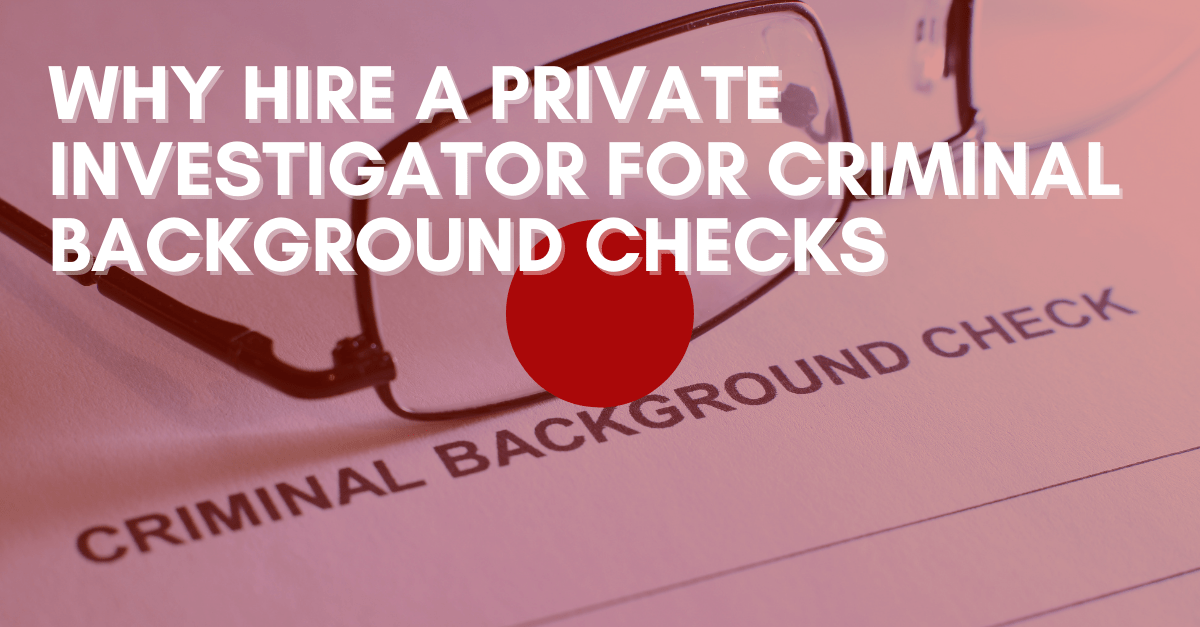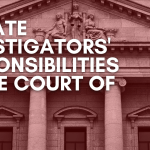When working a case it’s very important to have information on any given party’s criminal background. It’s important to note if they have had any criminal involvement, as it can provide significant leverage for a case.
For instance, criminal actions or accusations made against a person in the past can have a negative impact on them in court. Attorneys can use this against them. They can use it, for example, to put into question a given party’s motivations or credibility. This can be particularly important when trying to put into question a given statement or accusation from said party.
This means having information on someone’s prior criminal history or involvement is useful under most circumstances.
How do private investigators look into criminal history?

First of all, they perform a prior litigation check. This reveals all the legal actions taken by a party or any taken against them. Litigation checks also reveal information about a company in question, not just individuals.
Performing these reviews allows the private investigator to reveal the legal stance of their subject. This, in turn, reveals how these factors might affect their motives put into question in a given case. Essentially, it can make all the difference in a case and work as a focal pivot point.
When a private investigator finds this information and provides it to their client, it enables said attorney to use this information as leverage in the case. They can also utilize it to help them build a strategy or plan of action for their case. Giving them the angle they need for success.
How can attorneys use criminal history as leverage?
Any party’s past criminal involvement can be used against them in court. Attorneys with access to this information can use it to cast dirt on the person in question’s integrity. Which would call into question any given statements or accusations they make. Therefore, providing solid leverage from which to build their own case.

Information available in a past criminal check might include:
- A summary of offenses: Of all possible crimes this is the least serious. These hold different rules than other offenses and can usually be resolved without requiring a jury. However, a party’s involvement in such offenses can still be used as leverage against them in court.
- Misdemeanours: These are less serious crimes than felonies. They usually involve sentences requiring under a year in jail. They might also demand community services and/or fines.
- Felonies: These are crimes of a highly serious nature. Therefore, they come with the most severe penalties. The federal government defines these as crimes punishable by death or imprisonment of over a year. The punishment, of course, varies depending on the state you are in.
Past litigations, even if not criminal in nature can help in this regard too. They can help to plan an approach or angle of attack in the court of law.
If you find yourself in need of a licensed private investigator and their particular set of skills, please feel free to call us. Or simply click on this link to get in contact with one of our team members.









